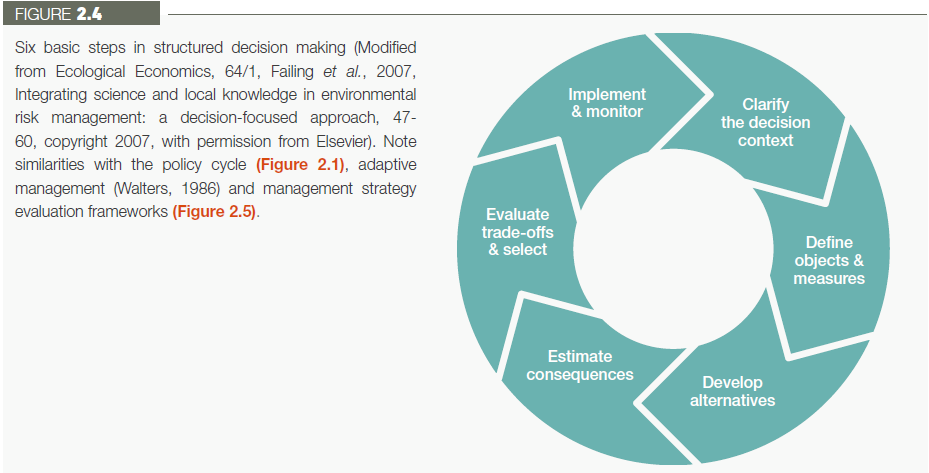Policy support tool
Structured Decision Making

Structured decision making is an organised approach to identifying and evaluating creative options and making choices in complex decision situations. Gregory et al. (2012) defines structured decision making as ‘the collaborative and facilitated application of multiple objective decision-making and group-deliberation methods’. Structured decision making is designed to deliver insight to decision makers about how well their objectives may be satisfied by potential alternative courses of action. It is a very general approach to decision support, which can conceivably be applied to any environmental decision problem at any scale and any level of social and institutional complexity.
Structured decision making is designed to deliver insight to decision makers about how well their objectives may be satisfied by potential alternative courses of action. It helps find acceptable solutions across groups, and clarifies divergent values that may underpin irreducible trade-offs.